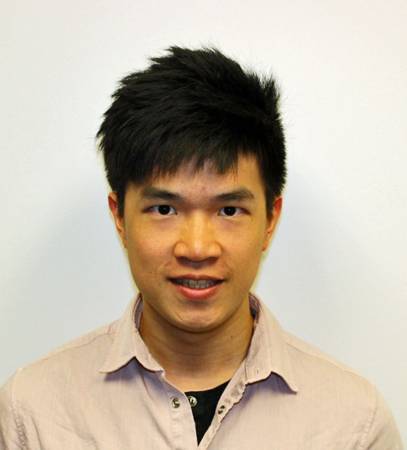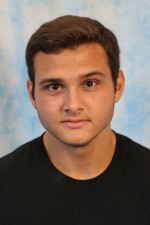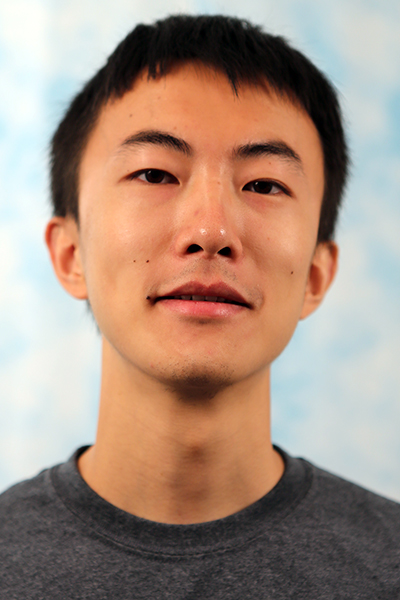Student Talks
Carnegie Mellon University
Learning Dense 3D Object Reconstruction without Geometric Supervision
Abstract: Geometric alignment across visual data has been the fundamental issue for effective and efficient computer vision algorithms. The established pixel correspondences between images indirectly infer the underlying 3D geometry, physically or semantically. While this builds the foundation of classical multi-view 3D reconstruction algorithms such as Structure from Motion (SfM) and Simultaneous Localization and Mapping [...]
Tendon Driven Foam Hands
Abstract: There has been great progress in soft robot design, manufacture, and control in recent years, and soft robots are a tool of choice for safe and robust handling of objects in conditions of uncertainty. Still, dexterous in-hand manipulation using soft robots remains a challenge. This talk introduces a novel class of soft robots in [...]
Carnegie Mellon University
Towards a Good Representation For Reinforcement Learning
Abstract: Deep reinforcement learning has achieved many successes over the recent years. However, its high sample complexity and the difficulty in specifying a reward function have limited its application. In this talk, I will take a representation learning perspective towards these issues. Is it possible to map from the raw observation, potentially in high dimension, [...]
Carnegie Mellon University
Eye Gaze for Assistive Manipulation
Abstract: Full robot autonomy is the traditional goal of robotics research. To work in a human-inhabited world, however, robots will often need to collaborate with humans. Many scenarios require human users to teleoperate robots to perform tasks, a paradigm that appears everywhere from space exploration, to disaster recovery, to assistive robotics. This collaboration enables tasks [...]
Carnegie Mellon University
Stability-Centric Mechanics for Rigid Body Manipulation
Abstract: The repertoire of human manipulation is filled with creative use of contacts to move the object about the hand and the environment. It’s the combination of these skills that makes human manipulation dexterous. However, in most robotic applications the robot just fix all contact points on the object and do grasping. Reliable robot manipulation [...]
Carnegie Mellon University
Combining Multiple Heuristics: Studies on Neighborhood-base Heuristics and Sampling-based Heuristics
Abstract: This thesis centers on the topic of how to automatically combine multiple heuristics. For most computationally challenging problems, there exist multiple heuristics, and it is generally the case that any such heuristic exploits only a limited number of aspects among all the possible problem characteristics that we can think of, and by definition, is [...]
Carnegie Mellon University
Robotic Grasping in the Wild
Zoom Link Abstract Robotics and artificial intelligence have witnessed tremendous progress in the past decade. Yet, we are still far from building the general purpose robot butler that can autonomously operate in homes and help with manipulation tasks like household chores. Grasping is an important action primitive for manipulation and needs to generalize to unstructured [...]
Carnegie Mellon University
Resource-constrained learning and inference for visual perception
Zoom Link Abstract Real-world applications usually require computer vision algorithms to meet certain resource constraints. In this talk, I will present evaluation methods and principled solutions for both cases of training and testing. First, I will talk about a formal setting for studying training under the non-asymptotic, resource-constrained regime, i.e., budgeted training. We analyze the [...]
Carnegie Mellon University
Multi-hypothesis iSAM2 for Ambiguity-aware Passive and Active SLAM
Archived video Abstract Simultaneous localization and mapping (SLAM) is the problem of estimating the state of a moving agent with sensors on it while simultaneously reconstructing a map of its surrounding environment, which has been a popular research field due to its wide applications. As many state-of-the-art SLAM algorithms can already achieve high accuracy in [...]
Carnegie Mellon University
Terrain Relative Navigation for Lunar Polar Roving: Exploiting Geometry, Shadows, and Planning
Archived Zoom Video Abstract Water ice at the lunar poles could be the most valuable resource beyond planet Earth. However, that value is not foregone, and can only be determined by rovers that evaluate the distributions of abundance, concentration, and characteristics of this ice. The near-term explorations will be solar and unlikely to endure night, [...]









